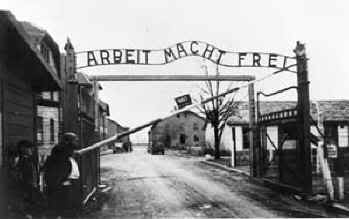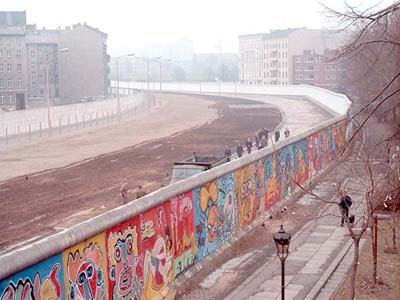 It is 80 years ago since the Night of Broken Glass [Kristallnacht]. That night, an organised mob of Nazi forces and sympathisers went on the rampage in towns and cities across Germany, smashing and destroying Jewish-owned property and businesses. It was a foretaste of what was to come during World War II. The extermination of anyone deemed sub-human by the warped mind of Adolf Hitler and his henchmen. Jews topped their league of the unfit, closely followed by gypsies, the mentally ill and many many others. The Reichskristallnacht was a night of infamy, and not just to Germany. Hitler had already been allowed to get away with murder for several years beforehand. In 1936, he occupied the Rhineland which had been ceded to France at the end of the First World War. The League of Nations, the predecessor of the United Nations, cried wolf but had no bite. On 12 March 1938, Nazi forces marched into Austria to join that country to Germany, an event referred to as the Anschluss. Neville Chamberlain flew to Munich to meet with Adolf Hitler on 30 September 1938, returning with the infamous phrase: "Peace for our time". Six weeks later, the Reichskristallnacht took place. Only a few months later, Germany invaded the Sudetenland area of Czecho-Slovakia, and again, nobody moved a finger to stop. In September 1939, Hitler thought he could get away with the invasion of Poland. But this time, it prompted a declaration of war, signalling the outbreak of the Second World War. The lights have gone out in Europe, it was said at the time. The lights in Europe had already been extinguished in 1914, and had not been relit, not even at the end of the First World War. The Versailles Peace Treaty of June 1919 contained all the ingredients for another war, which duly materialised.
It is 80 years ago since the Night of Broken Glass [Kristallnacht]. That night, an organised mob of Nazi forces and sympathisers went on the rampage in towns and cities across Germany, smashing and destroying Jewish-owned property and businesses. It was a foretaste of what was to come during World War II. The extermination of anyone deemed sub-human by the warped mind of Adolf Hitler and his henchmen. Jews topped their league of the unfit, closely followed by gypsies, the mentally ill and many many others. The Reichskristallnacht was a night of infamy, and not just to Germany. Hitler had already been allowed to get away with murder for several years beforehand. In 1936, he occupied the Rhineland which had been ceded to France at the end of the First World War. The League of Nations, the predecessor of the United Nations, cried wolf but had no bite. On 12 March 1938, Nazi forces marched into Austria to join that country to Germany, an event referred to as the Anschluss. Neville Chamberlain flew to Munich to meet with Adolf Hitler on 30 September 1938, returning with the infamous phrase: "Peace for our time". Six weeks later, the Reichskristallnacht took place. Only a few months later, Germany invaded the Sudetenland area of Czecho-Slovakia, and again, nobody moved a finger to stop. In September 1939, Hitler thought he could get away with the invasion of Poland. But this time, it prompted a declaration of war, signalling the outbreak of the Second World War. The lights have gone out in Europe, it was said at the time. The lights in Europe had already been extinguished in 1914, and had not been relit, not even at the end of the First World War. The Versailles Peace Treaty of June 1919 contained all the ingredients for another war, which duly materialised.  After the unspeakable atrocities of the Second World War, Germany was divided into four by the victorious allies. The British, French and American sectors became West Germany, whilst the Soviet sector was turned into East Germany, a communist state. Berlin was similarly divided. Until 1961, people from the East fled to the West in droves. A barrier was erected across Berlin in August 1961, later replaced by a high, concrete wall. Similar barriers were put up along the borders between East and West Germany. Anyone trying to flee from East to West was shot on sight, no questions asked. The advent of Mikhail Gorbatchov as leader of the USSR in the 1980s heralded a start of change. And when this wind of change blew across eastern Europe, it blew away all the communist regimes within the space of a few months in 1989.
After the unspeakable atrocities of the Second World War, Germany was divided into four by the victorious allies. The British, French and American sectors became West Germany, whilst the Soviet sector was turned into East Germany, a communist state. Berlin was similarly divided. Until 1961, people from the East fled to the West in droves. A barrier was erected across Berlin in August 1961, later replaced by a high, concrete wall. Similar barriers were put up along the borders between East and West Germany. Anyone trying to flee from East to West was shot on sight, no questions asked. The advent of Mikhail Gorbatchov as leader of the USSR in the 1980s heralded a start of change. And when this wind of change blew across eastern Europe, it blew away all the communist regimes within the space of a few months in 1989.  The Berlin Wall was torn down on 9 November 1989, and you can see the dilemma. Do we remember the Kristallnacht, and not celebrate the reunification of Germany? Do we celebrate the reunification, and ignore the Night of Broken Glass? Maybe the two can be reconciled. The Berliners remember the Kristallnacht in a very low-key but poignant manner. Every year, in the evening of November 9th, candles are left on the doorsteps of houses that were ransacked that night.
The Berlin Wall was torn down on 9 November 1989, and you can see the dilemma. Do we remember the Kristallnacht, and not celebrate the reunification of Germany? Do we celebrate the reunification, and ignore the Night of Broken Glass? Maybe the two can be reconciled. The Berliners remember the Kristallnacht in a very low-key but poignant manner. Every year, in the evening of November 9th, candles are left on the doorsteps of houses that were ransacked that night. The flame, burning at the top of this post, is my candle of remembrance for Kristallnacht.
No comments:
Post a Comment